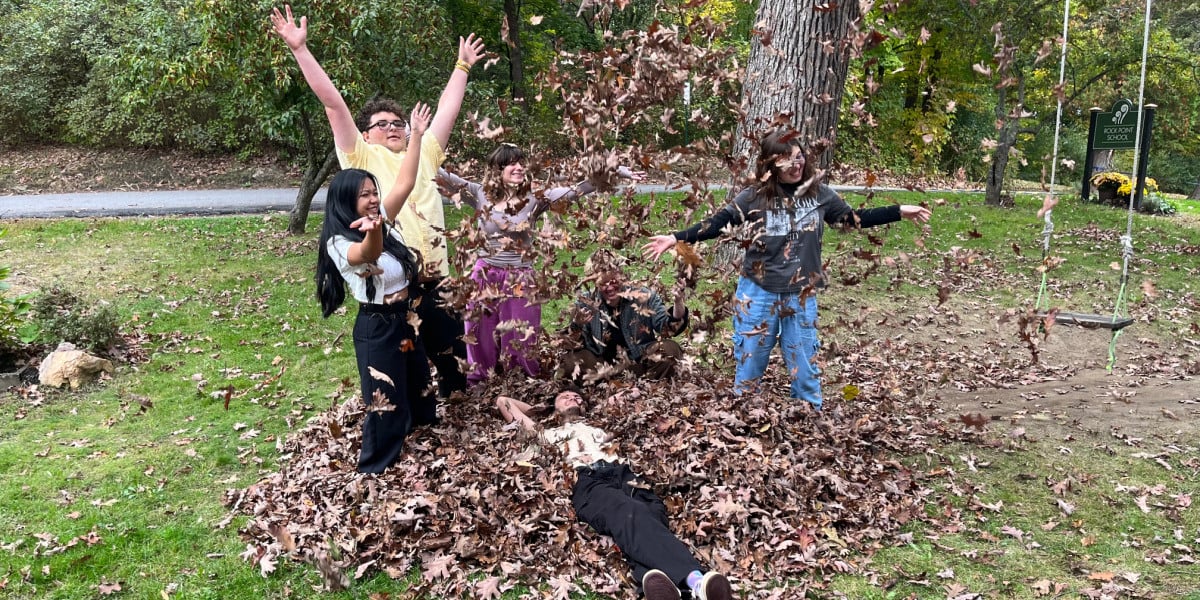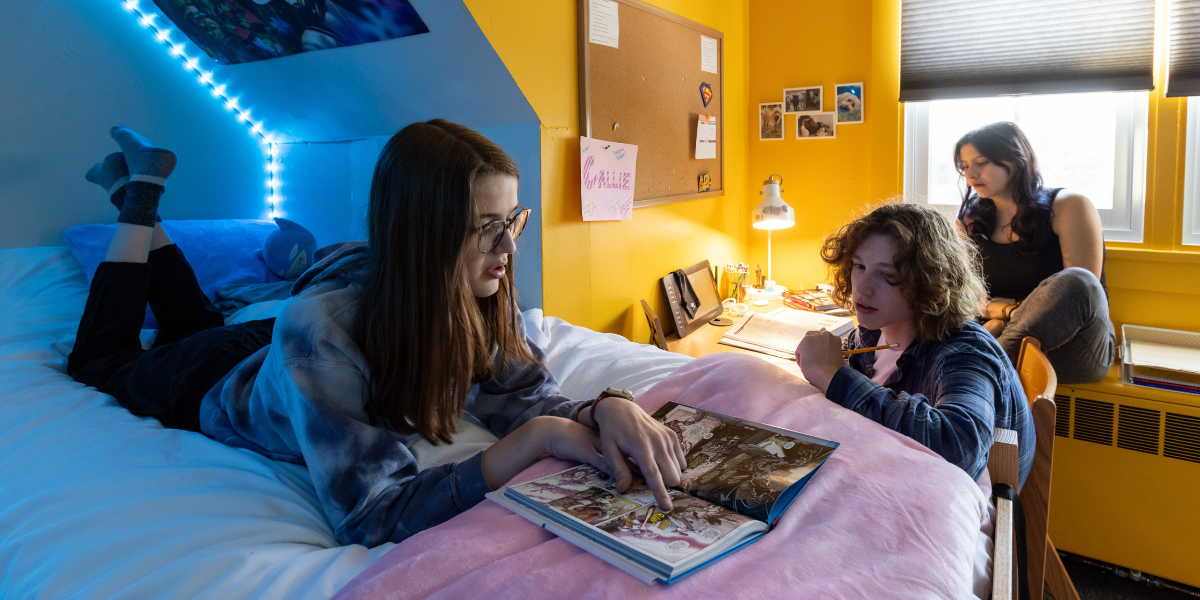Small is Beautiful: Education as if Every Student Really Mattered
In the small, beautiful, lakeside community of Burlington, there are both the advantages of a city — public transportation, rich cultural...


When I tell people I’m the Head of a high school, I often get the response “Wow! It must be hard working with teenagers.” As a culture, we tend to be intimidated by adolescents based on some common misperceptions and stereotypes in the media. Let's explore some of the reasons why adolescents can seem intimidating plus tips for nurturing healthy teenage (and adult) brains.
Teen brains have a high potential for out-of-the-box thinking, challenging the status quo, having a strong sense of empathy, and being creative. In my opinion, that's what makes it so much fun to be with teenagers. The media, however, is saturated with images of reckless, completely irrational, oversexed, or technology-addicted kids. While the reality is less dramatic for most teens, the adolescent brain is ripe for risk-taking, emotional decision-making, and is drawn to technology.
In the most general terms, the science behind this tendency is that the limbic system, or emotional center of the brain, is more developed in adolescence than the prefrontal cortex, or planning and decision-making part of the brain. Recently, we have hosted several events around brain development in adolescents, how it affects behavior, and what parents, schools, and teens can do to support healthy growth at this time. Dave Melnick, our presenter, expert, and the Director of Northeastern Family Institute has inspired us to come up with some “brain-based” tips to help you support your adolescents.
While adolescents spend much of their time trying to break away from their parents, relationship with parents and adults are still primary for healthy development. So, when your teen is in a heightened emotional state, rather than getting locked in a power struggle, try to keep your connection with your child. Making reflective statements and asking for more information can help your child feel heard and understood. An example might be, “It seems like you’re mad about your curfew, is that true? Why is it important to you to stay out later this weekend?” Listening to them can also give you some time to cool down and think about your emotional response. Another way to appeal to your relationship is by keeping things light or being playful. This can help jostle you both out of a power struggle.
Teens need to take risks to find their limits and grow into adults. Taking risks also has the “brain benefit” of releasing adrenaline and dopamine, which makes us feel good. While some risks can have tragic consequences, like drag racing or taking drugs, others can be beneficial. Helping teens take “healthy” risks is a great way to encourage growth and get them the chemical brain lift they crave.
For a shy or anxious adolescent, a risk might mean talking to someone new or applying for a job. If your teen is more physical, encouraging them to try activities like rock climbing, snowboarding, hiking, or skateboarding can help them to test their physical limits. Of course, the best way to get a kid to try something is to try it with them first, so it might be time for you to get out your climbing gear.
Above all, helping teens think through the consequences of actions can be helpful. One way to do this that is less “charged” than discussing their behavior, is to get them to discuss someone else’s risky behavior. This could mean discussing the latest celebrity scandal or even talking about what a friend or acquaintance might be doing.
There has been a lot of research on teens and sleep. What neuroscientists (see Frances Jensen’s "The Teenage Brain: A Neuroscientist’s Survival Guide to Raising Adolescents and Young Adults,") have found is that teen brains are programmed to go to sleep about three hours later than adults (around midnight) and that they need 8-9 hours of sleep to be healthy. Unfortunately, most high schools begin too early for this “natural” sleep cycle to occur. At Rock Point, we have made the choice to start our academic day at 9:30 to give our students more time to sleep, but if that is not an option, there are some things you can do.
Teens and technology go literally hand in hand these days. There are tons of scholarly articles about how teens use technology and not as many about what effect it might have on their development. From sexting to gaming to coding, kids use technology for all kinds of reasons - and not all of them are negative.
At Rock Point, we work with students to find a healthy balance with their technology use. What we have observed is that the more time kids spend in front of a screen, the more isolated they become. This can increase anxiety, impede social skills, and shorten attention span. There has been such a public outcry from parents around dealing with technology use and their children that we hosted a second discussion focused on this topic with Dave Melnick.
As usual with teens, they will spot hypocrisy around technology use from a hundred miles away, so the best way to encourage them to step away from their phones is to make it a rule for the whole family. Make it a goal that one or two hours a night are “no phone” times for everyone. This can mean eating dinner together, playing a game, or going for a walk. You can also make a family “docking station” for your devices, ensuring that no one brings their technology to bed.
Help your teen find a job or activity that they can enjoy “IRL” (in real life). Many of our students who have had gaming addictions find that playing board or card games like Magic the Gathering or Settlers of Catan can be a fun way to connect face-to-face with others, while still allowing them to practice strategy. And on a windy summer day, a canoe on a lake can offer experience with a different type of strategy.
Sometimes when you are stressed, it can be hard to see how the way you are feeling is affected by whether or not you are taking care of your own basic needs. I like to remind myself and the team at Rock Point School that the way we balance (or not) the ups and downs of life is an important part of nurturing healthy development for the teenage brains around us.

In the small, beautiful, lakeside community of Burlington, there are both the advantages of a city — public transportation, rich cultural...

Adolescence is a time of enormous growth and self-discovery. As teens navigate who they are, how they fit in, and what matters to them, they need...

“But what do you do in the winter?” is a question that I hear frequently from people outside Vermont when they learn about our small boarding and day...